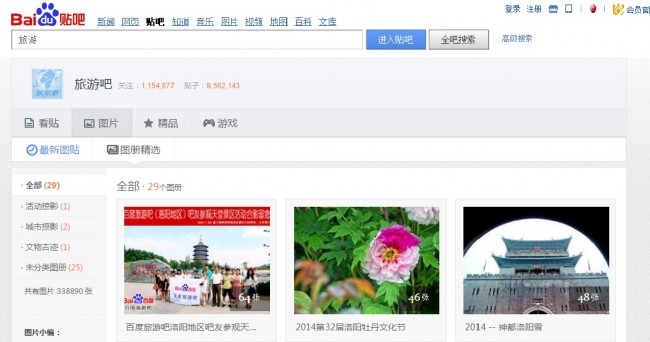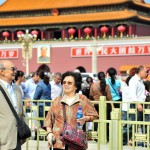Chinese tourists used to prepare their trip online
Chinese tourists used to prepare their trip online
In the billion inhabitants and 618 million Internet users country, the practices of preparing travel are changing. In fact a recent market research on how Chinese tourists prepare their journey found that 16% of them rely on the internet consumers review sites to plan their trip. This percentage even got ahead of the percentage that went to their friends 14% and their families at 13%.
Indeed, Chinese consumers like to learn more about the product they are about to buy. In particular if it is a major purchase such as a trip. They do not want to be disappointed with their investment so they spend time planning their trip.
To do so Chinese consumers will naturally turn to several sources of information.
Online booking platforms
The first reflex of a tourist in general is to type keywords about the destinations they wish to have information on in a search engine. In China this means searching on Baidu, which will then find many websites willing to sell their services to Chinese consumers.
Online booking sites are consulted to search for information in order to prepare for the trip. Indeed the study of Hotels.com found that Chinese consumers consult their family as much as online booking platforms, since the percentages given for both is 13% each. Admittedly online booking websites are doing their best to attract tourists seeking information. Apart from photos and videos these sites also offer the opportunity to consult consumer reviews. A good way to be aware of the reputation of the destination, a hotel or even a web site’s service. Comments left by their predecessors are also the first criterion that 47% Chinese will take a look at. And 16% of the future tourists rely on sites offering consumer reviews to help them make their final decision.
The most popular booking websites are: Ctrip, Tuniu, Qunar, Trip.taobao Xinxin, Lumama, Baidu Luyou, Lotour, eLong…
Social Networks
The second source to which a Chinese tourist looking for travel information will turn is social networks. This is indeed a habit to the Chinese Internet since 90% of them are on at least one social network.
The microblogging platform Weibo is the market leader with 500 million registered users which 50 million are active every day. Chinese Internet users are accustomed to go on it to find all types of information, even the news. Specialized travel blogs help users to make their choice, with documented experience of stories, photos, videos and tips. Weibo is also an important source of key opinion leaders, who by the number of people enrolled in their publications can make the sun shine or make it rain on certain destinations, hotels and services offered by the major players of tourism in China. A tourism professional should therefore ensure that they are in the good terms with the most influential key leaders of opinion.
Travel Forums
In terms of forums, the leader in China is Baidu Tieba, one of many sites governed China’s Internet giant. Its name means “stick a bar.” This is an online community where each user can search on topics that interest them. If the subject they are looking for does not exist they can create it, this forum subject will be called a “bar”.
It is a good way for Baidu to create a communication platform very close to its online search engine services. It is also a good way for Chinese to communicate and help each other on the topics that matters most to them. The travel forum Tieba Baidu is also a great way for Chinese Internet users to find information and discuss the various aspects of the trip they wish to undertake.
Chinese consumers are used to do a lot of research on the Internet before their purchases and purchase a trip is no exception. So they are used to prepare their journey on the internet through different platforms. They look for information on booking sites online, social networks or on travel forums. Tourism actors in China therefore have a better chance to attract Chinese customers by focusing their communication on such platforms.
To go further:
How to attract Chinese tourists?
http://chinesetouristagency.com/
http://online.wsj.com/news/articles/SB10001424052702304563104576361270343556278?mg=reno64-wsj
http://touristchinese.wordpress.com/


















